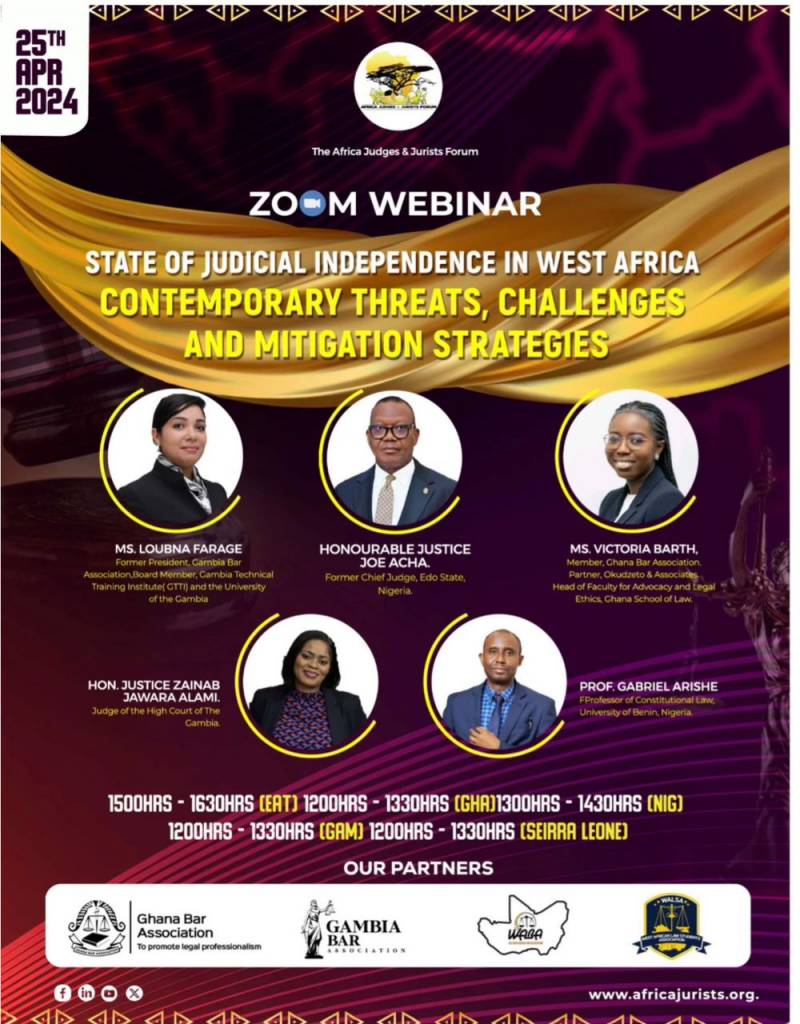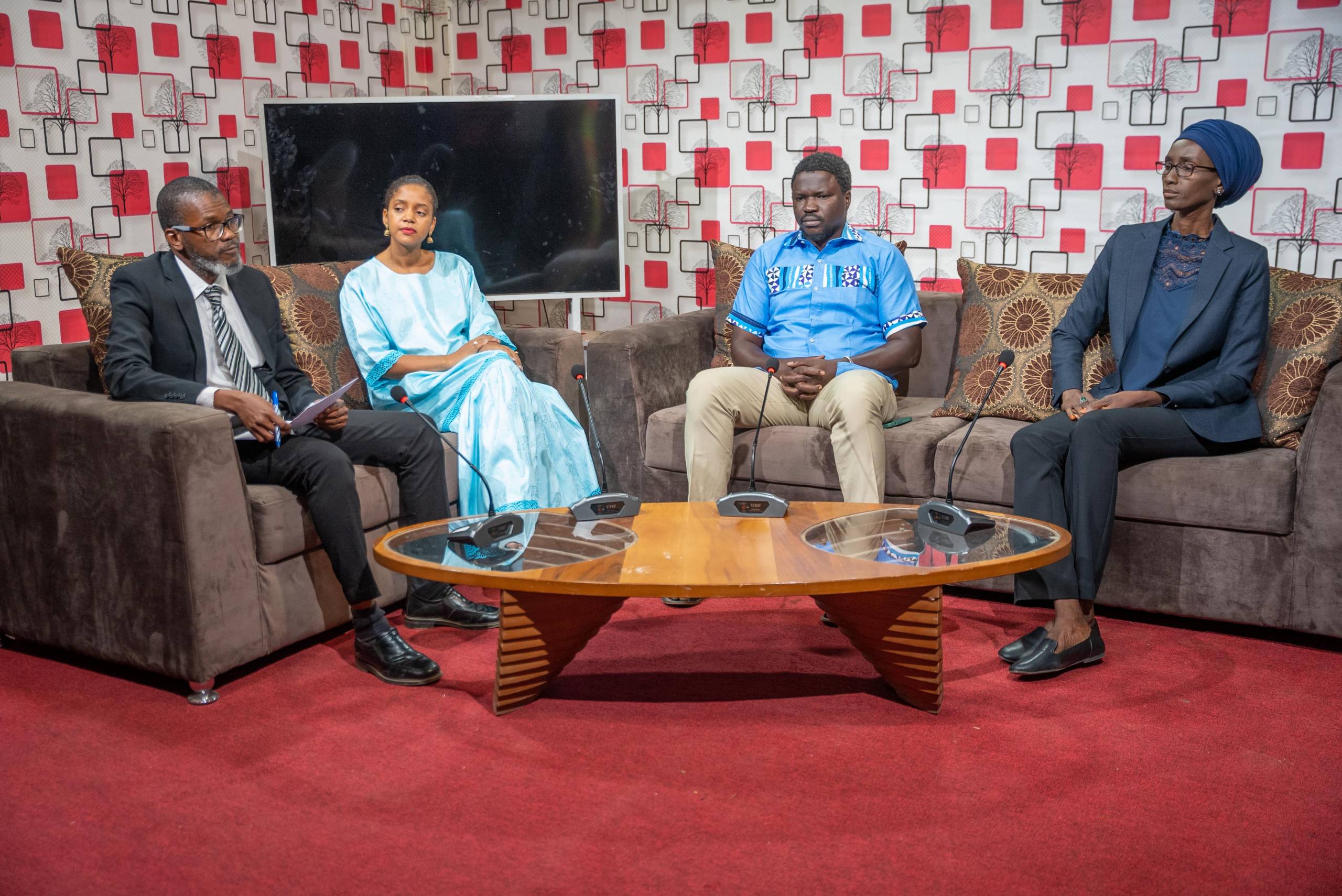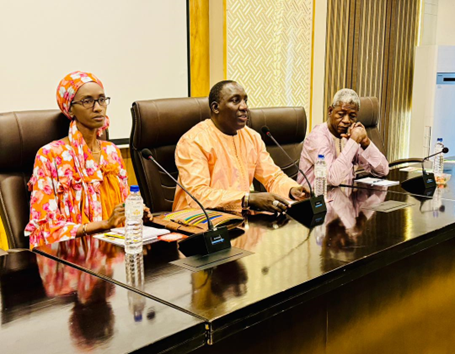
On April 25, 2024, the Africa Judges and Jurists Forum (AJJF), in collaboration with the Gambia Bar Association, Ghana Bar Association, West African Bar Association (WABA), and West African Law Students’ Association (WALSA), hosted a webinar to discuss the state of judicial independence in West Africa. The event focused on contemporary threats, challenges, and strategies for safeguarding judicial independence in the region.
Ms. Louna Farage, former President of the Gambia Bar Association and representing the Bar Association, was among the speakers and shared insights on the threats facing judicial independence in Africa.
The discussion highlighted that threats to judicial independence are a global issue and often multi-faceted, noting that, national governments are structured around the executive, legislature, and judiciary, with the judiciary is often being the weakest link. Despite international and regional instruments designed to protect the judiciary with judges continuing to face significant threats that undermine their independence.
The speakers emphasized the need for judges to be guided solely by their conscience and the law not be influenced by political officials highlighting that the constitutions of many West African countries do not adequately protect judicial independence, particularly in the processes of appointment, discipline, and removal of judicial officers.
To address these threats, it was recommended that national governments strengthen legal frameworks through constitutional amendments, particularly in the appointment and removal processes of judges. There were also calls to establish independent judicial regulatory authorities and enact laws to enhance judicial tenure. Additionally, it was suggested that judges serve for life or until retirement, with any removal conducted transparently by an independent tribunal.
The webinar which attracted 88 attendees, including judges, lawyers, civil society representatives, academics, and members of the public, underscored the urgent need to bolster judicial independence as a cornerstone of democratic governance, strengthening legal safeguards against executive interference and promoting judicial non-interference are essential steps in upholding the rule of law and protecting the integrity of judicial institutions.

